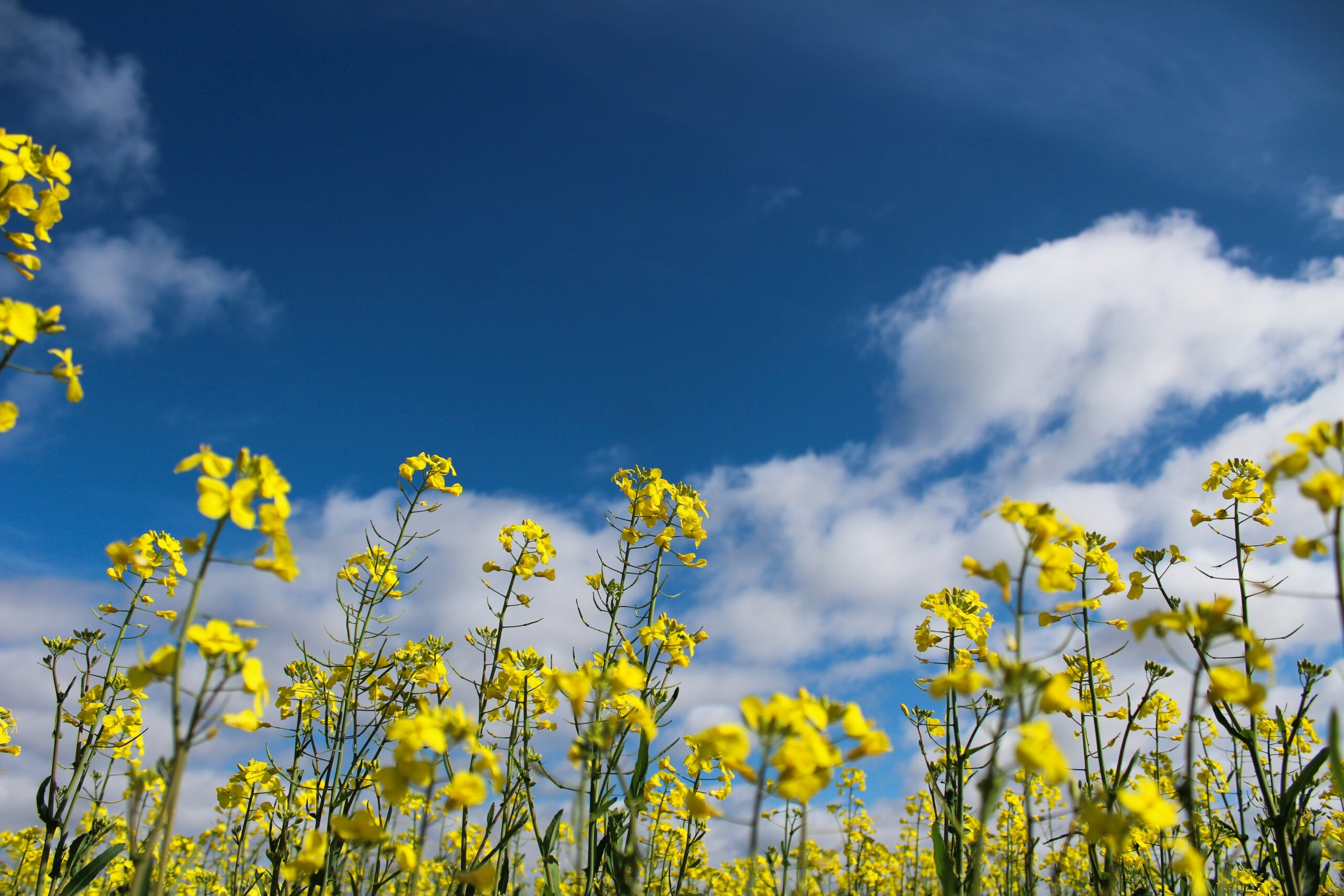|
Canola Quick Bytes
A supplement to U.S. Canola Digest
Capitol Hill
 On July 11, the U.S. Energy Information Administration (EIA) updated its forecast for renewable diesel production in 2023 and 2024 as part of its Short-Term Energy Outlook. The EIA expects renewable diesel production to continue to increase, but at a slower rate. Compared to the previous forecast issued in June 2023, the EIA increased its estimate by 2.2 percent but reduced its 2024 forecast by 2.8 percent. The latter is due to the U.S. Environmental Protection Agency (EPA) revising its Renewable Fuel Standard rule on biofuel volume requirements on June 21. However, it still expects U.S. renewable diesel production to grow to 219,000 barrels per day in 2024. On July 11, the U.S. Energy Information Administration (EIA) updated its forecast for renewable diesel production in 2023 and 2024 as part of its Short-Term Energy Outlook. The EIA expects renewable diesel production to continue to increase, but at a slower rate. Compared to the previous forecast issued in June 2023, the EIA increased its estimate by 2.2 percent but reduced its 2024 forecast by 2.8 percent. The latter is due to the U.S. Environmental Protection Agency (EPA) revising its Renewable Fuel Standard rule on biofuel volume requirements on June 21. However, it still expects U.S. renewable diesel production to grow to 219,000 barrels per day in 2024.
In June-July, the EPA released a Vulnerable Species Pilot Project and an Herbicide Strategy in response to escalating challenges fulfilling its Endangered Species Act obligations for pesticide decisions. In 2021, the EPA began developing a long-term, comprehensive plan to meet these obligations under the Federal Insecticide, Fungicide, and Rodenticide Act. The plan includes several pilot projects to provide earlier protections for listed species, such as the Vulnerable Species Pilot, which identifies mitigations to protect the listed species from different types of pesticides. The Herbicide Strategy calls for early mitigations to minimize impacts of agricultural herbicides on more than 900 federally endangered and threatened species and critical habitats. The U.S. Canola Association is developing comments on the Vulnerable Species Pilot, due by Aug. 6, 2023, and likely on the Herbicide Strategy as well by Sept. 22.
 Some states have begun adding warnings to pesticide labels that conflict with federal law and scientific findings of the EPA. As a result, access to these pesticides such as glyphosate, which growers have used for years, is in jeopardy. To address this concern, bipartisan legislation has been introduced to protect pesticide labels approved by the EPA. Show your support for the Agricultural Labeling Uniformity Act (H.R. 4822) by editing and sending a pre-drafted letter to your member of Congress. A new study reinforces the critical importance and impact of glyphosate on American agriculture, farmers’ livelihoods, the economy and environment. Some states have begun adding warnings to pesticide labels that conflict with federal law and scientific findings of the EPA. As a result, access to these pesticides such as glyphosate, which growers have used for years, is in jeopardy. To address this concern, bipartisan legislation has been introduced to protect pesticide labels approved by the EPA. Show your support for the Agricultural Labeling Uniformity Act (H.R. 4822) by editing and sending a pre-drafted letter to your member of Congress. A new study reinforces the critical importance and impact of glyphosate on American agriculture, farmers’ livelihoods, the economy and environment.
Agronomy
 In the USCA Blog, Mike Stamm, M.S., canola breeder at Kansas State University, discusses the growth potential of winter canola in the Great Plains as a result of improving high-yielding and regionally adapted winter canola varieties, advancing canola cropping systems, and delivering new technologies and production practices to growers. In the USCA Blog, Mike Stamm, M.S., canola breeder at Kansas State University, discusses the growth potential of winter canola in the Great Plains as a result of improving high-yielding and regionally adapted winter canola varieties, advancing canola cropping systems, and delivering new technologies and production practices to growers.  Also in the USCA Blog, Girisha Ganjegunte, Ph.D., professor at Texas A&M University, addresses developing salt-tolerant canola as an alternative crop in southern New Mexico and far west Texas using marginal irrigation water. Also in the USCA Blog, Girisha Ganjegunte, Ph.D., professor at Texas A&M University, addresses developing salt-tolerant canola as an alternative crop in southern New Mexico and far west Texas using marginal irrigation water.
Growers who planted canola had 20 percent higher wheat yields the following year on the same fields, reports Brian Caldbeck of Caldbeck Consulting and Rubisco Seeds in Farm Progress. Plus, canola has about 45 percent oil — twice that of soybeans — which “changes the dynamics on how much money you can make per acre,” he says. With winter canola, which generally grows in states south of those bordering Canada, farmers can double-crop with soybeans and store more carbon in the soil due to a longer growth cycle. “From a carbon sequestration perspective, it’s a winner,” Caldbeck notes. “With canola, 70% of the biomass stays in the field after harvest.” All of these benefits make winter canola attractive to the renewable diesel industry, whose “expansion is going to be a big plus,” adds Dan Marquart, president of the Northern Canola Growers Association. (Photo by Brian Caldbeck.)
 Advancements in ribonucleic acid interference interference (RNAi) technology could soon lead to new tools for managing canola diseases and pests, reports Real Agriculture’s Canola School. RNAi targets specific RNA sequences in a disease or pest rather than entire proteins or enzymes as is the case with current pesticides, according to Chris Manchur, agronomy specialist with the Canola Council of Canada. “Every organism has its own set of sequences that are unique to it, so we can engineer them to target specific canola pests, such as flea beetles or even sclerotinia,” he explains. RNAi technology can be delivered through plant genetics or a spray application, reducing effects on unintended targets and breaking down quickly in soil or water. Advancements in ribonucleic acid interference interference (RNAi) technology could soon lead to new tools for managing canola diseases and pests, reports Real Agriculture’s Canola School. RNAi targets specific RNA sequences in a disease or pest rather than entire proteins or enzymes as is the case with current pesticides, according to Chris Manchur, agronomy specialist with the Canola Council of Canada. “Every organism has its own set of sequences that are unique to it, so we can engineer them to target specific canola pests, such as flea beetles or even sclerotinia,” he explains. RNAi technology can be delivered through plant genetics or a spray application, reducing effects on unintended targets and breaking down quickly in soil or water.
Nutrition
What’s the best oil for frying? Canola oil, according to the Tasting Table. That’s because it has both high heat tolerance and a neutral flavor that doesn’t interfere with food flavors. Added bonus: canola oil is affordable.
Other Country News
 Chris Davison will become the new CEO and president of the Canola Council of Canada as of July 31, 2023. He comes with more than 25 years of experience in the agricultural sector, including work in government and industry relations. Davison will replace retiring president Jim Everson, who says that “Chris has demonstrated strong leadership and teamwork which he will put to work to advance the sector as part of its next phase of growth.” Chris Davison will become the new CEO and president of the Canola Council of Canada as of July 31, 2023. He comes with more than 25 years of experience in the agricultural sector, including work in government and industry relations. Davison will replace retiring president Jim Everson, who says that “Chris has demonstrated strong leadership and teamwork which he will put to work to advance the sector as part of its next phase of growth.”
How would a potential glyphosate ban in the European Union affect society? A new study from Aimpoint Research commissioned by Bayer indicates that immediate impacts would be costly to the economy, farmers and the environment. A ban would drive up food prices, input costs for farmers and overall production costs by more than $1.9 billion among other things. The report, “A Future Without Glyphosate,” comes as the European Food Safety Agency determined there are no “critical areas of concern” with the herbicide, but the European Commission has the final say on its re-registration.
Latest Industry News
 Researchers at the University of Manitoba are working on an eco-friendly plastic substitute using canola oil, reported CTV News (Canada) and iHeart Radio. The result will be a biodegradable, flexible packaging material derived from a by-product of the canola oil extraction process. The research is ground-breaking and could increase the scope of what canola can do and revenue for growers. However, researchers need at least another year or two before they’re ready to bring the bioplastic to market. Researchers at the University of Manitoba are working on an eco-friendly plastic substitute using canola oil, reported CTV News (Canada) and iHeart Radio. The result will be a biodegradable, flexible packaging material derived from a by-product of the canola oil extraction process. The research is ground-breaking and could increase the scope of what canola can do and revenue for growers. However, researchers need at least another year or two before they’re ready to bring the bioplastic to market.
NRGene Canada, an artificial intelligence genomics company, is developing a new clubroot-resistant canola variety. It mapped the genomic positions of a newly discovered trait for high resistance to clubroot. It also developed DNA markers for the trait to make it easy to integrate into canola seed varieties. Resulting clubroot-resistant varieties have the potential to reduce yield loss by up to 90 percent.
 Northern Canola Growers Association Executive Director Barry Coleman told Red River Farm Network in its “Canola Minute” segment that biofuel production is happening “at a record pace.” Canola represents 16 percent of total vegetable oils used in biofuel production, with 989 million pounds of canola oil going into biodiesel and renewable diesel in the first four months of 2023. Coleman adds that the canola industry has “met the challenge” of increasing production to alleviate any stress around the food versus fuel debate. Northern Canola Growers Association Executive Director Barry Coleman told Red River Farm Network in its “Canola Minute” segment that biofuel production is happening “at a record pace.” Canola represents 16 percent of total vegetable oils used in biofuel production, with 989 million pounds of canola oil going into biodiesel and renewable diesel in the first four months of 2023. Coleman adds that the canola industry has “met the challenge” of increasing production to alleviate any stress around the food versus fuel debate.
Kansas State University officials, along with the Great Plains Canola Association, Scoular and Bayer Crop Science, will host winter canola educational meetings in Enid, Okla., and Wichita, Kan., Aug. 9 to help farmers make fall planting decisions.
About the USCA
The U.S. Canola Association will host its fall board meeting in St. Louis, Mo., Oct. 29-31 in conjunction with the National Canola Research Conference and 2023 ASA, CSSA, SSSA International Annual Meeting. Register by Sept. 20 at acsmeetings.org/register.
Want to see exactly where canola is growing in the United States? The USCA has a new canola acreage map by county on its website.
Get social with us on Instagram, LinkedIn, Facebook, Twitter and YouTube.
Want to promote your products or services to canola producers and industry members? Visit our advertising pages to find specs, deadlines and rates to advertise in this monthly e-newsletter or on UScanola.com.
|
 On July 11, the U.S. Energy Information Administration (EIA) updated its forecast for renewable diesel production in 2023 and 2024 as part of its Short-Term Energy Outlook. The EIA expects renewable diesel production to continue to increase, but at a slower rate. Compared to the previous forecast issued in June 2023, the EIA increased its estimate by 2.2 percent but reduced its 2024 forecast by 2.8 percent. The latter is due to the U.S. Environmental Protection Agency (EPA) revising its Renewable Fuel Standard rule on biofuel volume requirements on June 21. However, it still expects U.S. renewable diesel production to grow to 219,000 barrels per day in 2024.
On July 11, the U.S. Energy Information Administration (EIA) updated its forecast for renewable diesel production in 2023 and 2024 as part of its Short-Term Energy Outlook. The EIA expects renewable diesel production to continue to increase, but at a slower rate. Compared to the previous forecast issued in June 2023, the EIA increased its estimate by 2.2 percent but reduced its 2024 forecast by 2.8 percent. The latter is due to the U.S. Environmental Protection Agency (EPA) revising its Renewable Fuel Standard rule on biofuel volume requirements on June 21. However, it still expects U.S. renewable diesel production to grow to 219,000 barrels per day in 2024. Some states have begun adding warnings to pesticide labels that conflict with federal law and scientific findings of the EPA. As a result, access to these pesticides such as glyphosate, which growers have used for years, is in jeopardy. To address this concern, bipartisan legislation has been introduced to protect pesticide labels approved by the EPA. Show your support for the Agricultural Labeling Uniformity Act (H.R. 4822) by editing and sending a pre-drafted letter to your member of Congress. A new study reinforces the critical importance and impact of glyphosate on American agriculture, farmers’ livelihoods, the economy and environment.
Some states have begun adding warnings to pesticide labels that conflict with federal law and scientific findings of the EPA. As a result, access to these pesticides such as glyphosate, which growers have used for years, is in jeopardy. To address this concern, bipartisan legislation has been introduced to protect pesticide labels approved by the EPA. Show your support for the Agricultural Labeling Uniformity Act (H.R. 4822) by editing and sending a pre-drafted letter to your member of Congress. A new study reinforces the critical importance and impact of glyphosate on American agriculture, farmers’ livelihoods, the economy and environment.
 In the
In the  Also in the
Also in the  Advancements in ribonucleic acid interference interference (RNAi) technology could soon lead to new tools for managing canola diseases and pests, reports
Advancements in ribonucleic acid interference interference (RNAi) technology could soon lead to new tools for managing canola diseases and pests, reports  Chris Davison
Chris Davison Researchers at the
Researchers at the  Northern Canola Growers Association Executive Director
Northern Canola Growers Association Executive Director